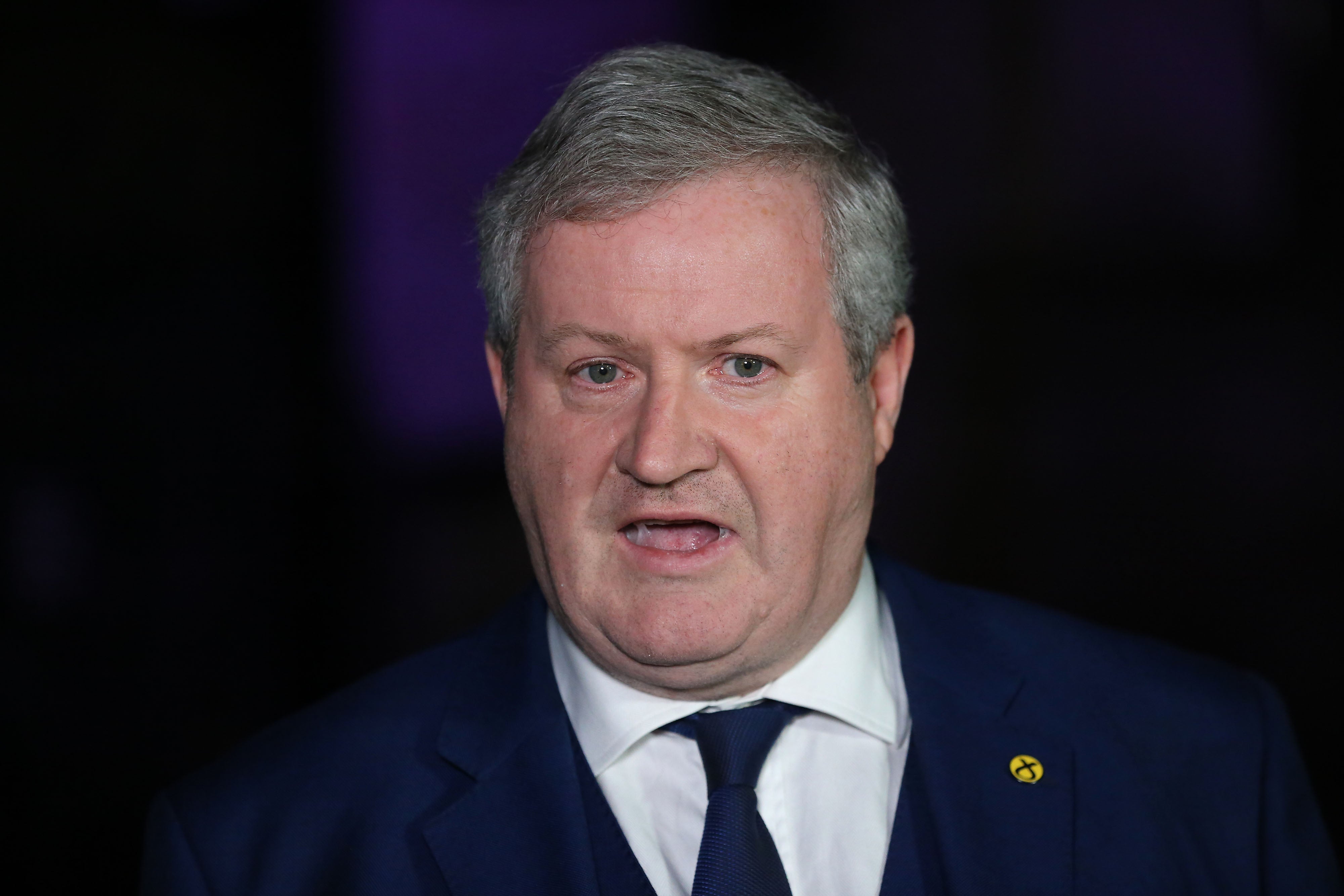Referendum bill could see Scots vote on independence this year, SNP says
New bill could trigger second independence referendum later this year, Ian Blackford said

Your support helps us to tell the story
From reproductive rights to climate change to Big Tech, The Independent is on the ground when the story is developing. Whether it's investigating the financials of Elon Musk's pro-Trump PAC or producing our latest documentary, 'The A Word', which shines a light on the American women fighting for reproductive rights, we know how important it is to parse out the facts from the messaging.
At such a critical moment in US history, we need reporters on the ground. Your donation allows us to keep sending journalists to speak to both sides of the story.
The Independent is trusted by Americans across the entire political spectrum. And unlike many other quality news outlets, we choose not to lock Americans out of our reporting and analysis with paywalls. We believe quality journalism should be available to everyone, paid for by those who can afford it.
Your support makes all the difference.Scots could vote on independence this year with the help of new SNP legislation, Ian Blackford has said.
The Westminster leader claimed that a referendum could take place “as early as late 2021” if his party wins the Scottish Parliament election in May.
More than 20 polls have suggested that Scotland would vote in favour of independence in the last year.
In 2014, Scotland voted to remain part of the UK with 55 per cent of the vote. But calls for a second referendum could finally come to fruition, Mr Blackford believes.
“There’s a Bill that will be published over the coming weeks and that can be enacted once we’re on the other side of the election,” he said.
“[Scottish Constitution Secretary Mike Russell] has talked about a six-month period once the legislation is triggered which could be in June, so it could be the case we could face a referendum as early as late 2021.”
The greatest barrier to a second referendum the SNP have faced since 2014 is the refusal of both Theresa May and Boris Johnson to grant them permission.
Section 30 of the Scotland Act 1998 allows Westminster to temporarily bestow constitutional power to Holyrood, which means they can hold a referendum.
This order was triggered ahead of the 2014 referendum, but Mr Johnson has said that he sees “no reason” ever to do so again, even if the SNP win their next election.
Although SNP leader Nicola Sturgeon has maintained that a second independence referendum must be “legal and legitimate”, she has not explicitly ruled out pursuing alternative routes to triggering section 30.
Any such alternative is likely to face serious opposition from Westminster. Even if a referendum bill passed through Scottish parliament, it is possible the British government would refuse to send it for royal assent.
A spokesperson for the Cabinet Office told The Independent:
“The Prime Minister remains fully committed to strengthening and levelling up all parts of the country by empowering local communities.
“He has been clear that all parts of the UK are stronger together and he will be the voice of the majority of Scottish people who voted decisively to remain in the United Kingdom.”



Join our commenting forum
Join thought-provoking conversations, follow other Independent readers and see their replies
Comments